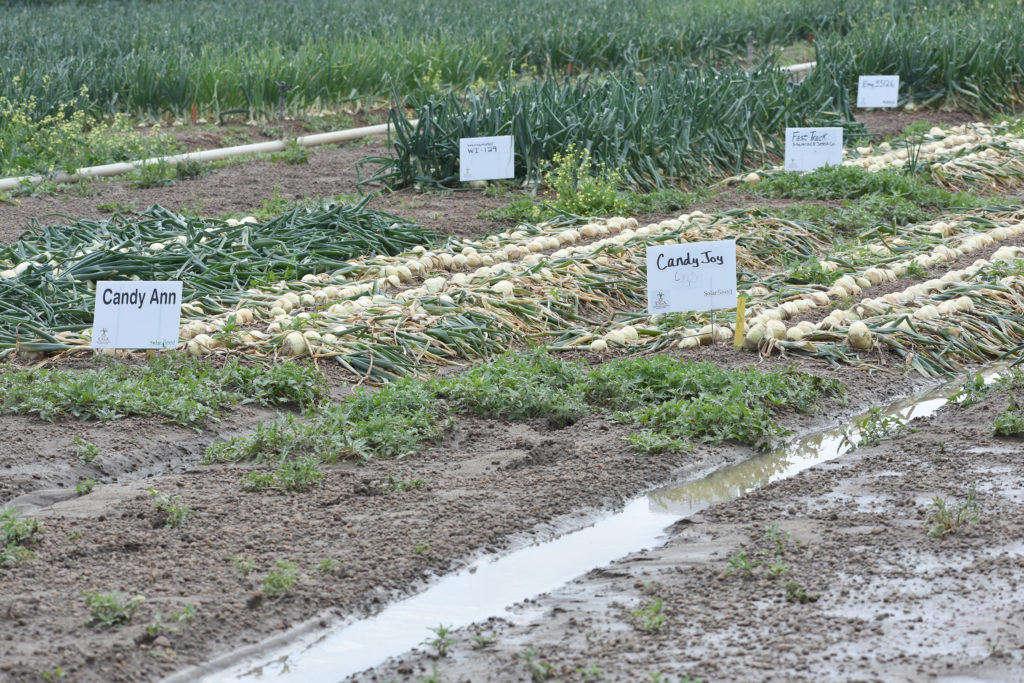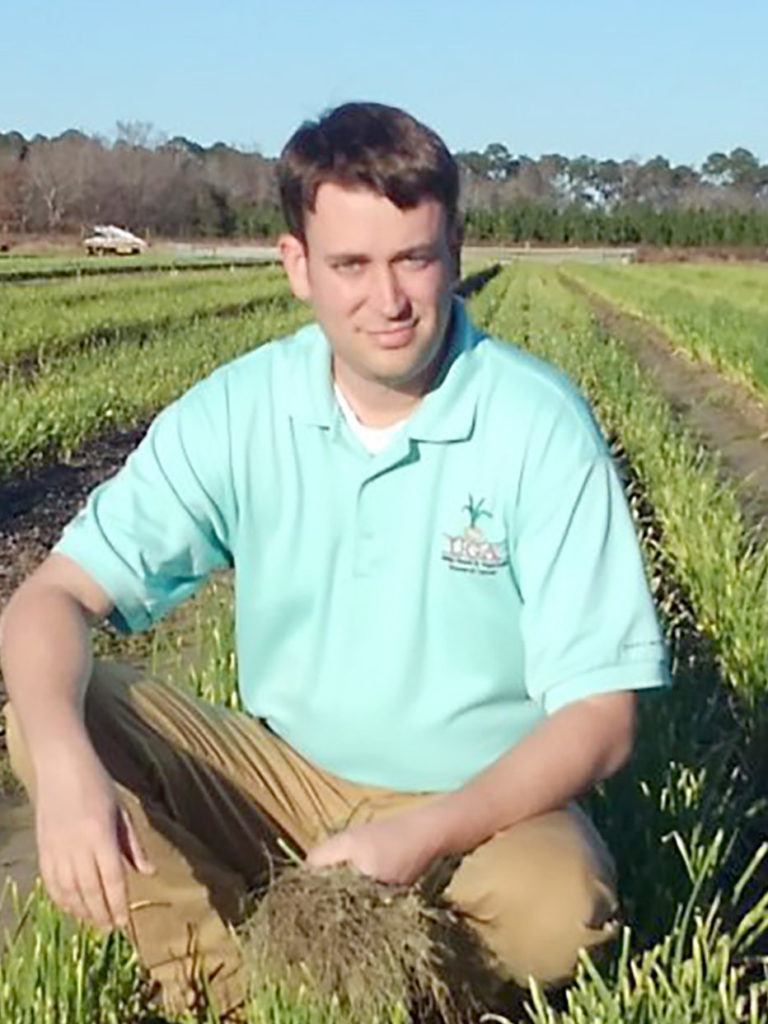
By Clint Thompson
Variety selection is one of the first steps Georgia Vidalia onion producers take in producing a valuable crop every season. They depend on variety testing by University of Georgia Extension specialists to provide data supporting what varieties perform best under specific conditions.
Chris Tyson, UGA Extension area onion agent, highlighted specific factors that he evaluates when studying different varieties.
“There are several different things we look at. One thing will just be the maturity of the onions. Are they ready the first of April, or are they ready the end of April? We’re looking at varieties where some of them are new and don’t know much about. We’re seeing how they fit as far as maturity. There’s one that we look at every year and we have a good idea where they’re going to fall and compare them to other varieties,” Tyson said. “The second would be yield. How well do they yield? Do they make 700 boxes to the acre or 1,200 boxes to the acre? That’s important. Also, within the yield, how do they grade? Are they making a lot of mediums or jumbos or colossal?”
UGA Variety Testing Trials

Tyson studied more than 50 varieties over the past year as part of his research trials. UGA harvests, dries, weighs and grades the crop along with sending samples to Athens, Georgia for flavor analysis. Those interested can click here to view variety trials for the 2021-22 season.
“With the variety test, we try to get as much information as we can to the growers. What’s the flavor profile? How does it yield? What does maturity look like?” Tyson said.
Variety trials also provide growers more than one option to consider when planting their crop the following season.
“They don’t just plant one variety. They try to spread it around a lot to mitigate their risks and to avoid bottlenecks at harvest. They’ve got to spread harvests out from the end of March to the first of May. There’s a lot of factors that go into picking the varieties that you want,” Tyson said. “They don’t put all their eggs into one basket. One variety may not do good one year, and other varieties may do fine and vice versa the next year. It helps with the risks.”
Tyson said growers will start planting seed the first week of September.









